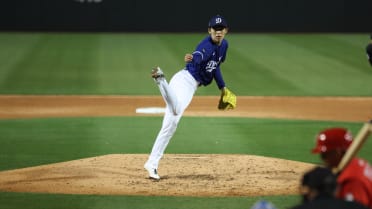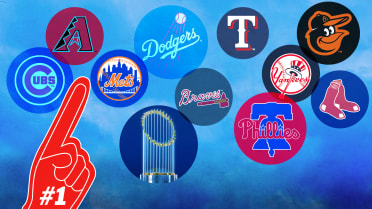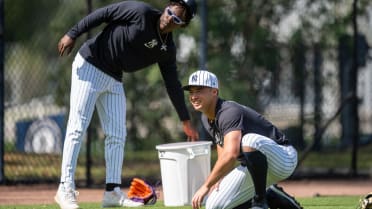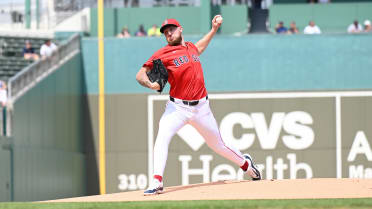This prospect 'might be the hardest worker' in the Twins' system
The way Luke Keaschall puts it, the goals of his development are pretty simple, really.
“I want to hit the crap out of the ball and be able to play any position they ask me to play,” Keaschall said.
The way the 21-year-old has done that has already put him on the fast track to making real noise in the organization. Though he’s ranked No. 9 in MLB Pipeline’s organizational rankings for the Twins, the club’s 2023 second-round pick is quickly on the rise, recently cracking Baseball America’s overall top 100 and having been promoted on May 27 to become the first player in the organization’s ‘23 Draft class to reach Double-A Wichita.
Even as one of the youngest players in the Texas League, Keaschall has slotted in as the everyday leadoff hitter for the Wind Surge, hitting one spot ahead of Top 100 prospect (No. 31, per MLB Pipeline) Emmanuel Rodriguez before “Emma” was placed on the IL with a right thumb injury. It’s been a relatively aggressive promotion timeline, but one that’s been earned, because Keaschall has absolutely been meeting his goal.
“Pitchers are trying to get you out, and you're trying to get hits,” Keaschall said. “At the end of the day, they make a lot of mistakes, and we're trying to do damage on those mistakes. So I haven't really noticed too much of a difference yet. I'm sure the higher up you get in baseball, the better pitchers get and stuff like that.”
Keaschall has continued to move up at a dizzying pace, but has responded with the same relentless production at every level, helping him carry a career .311/.431/.498 slash line in the Minors into Sunday, with a nearly even strikeout-to-walk ratio, a heaping of stolen bases and still-developing power.
It hasn’t taken long at each level for the Twins to feel they’ve seen what they wanted to see from Keaschall. He only needed 20 games with Single-A Fort Myers last season before he got the bump to High-A Cedar Rapids. And he’d only played 52 games over the past two campaigns with the Kernels before getting the call to Double-A Wichita two weeks ago, less than two months into his first full season.
“I still feel like there's a lot of room for me to grow as a baseball player in every aspect of the game,” Keaschall said. “I'm still young and learning. I feel like a sponge right now. I feel like I'm trying to take in as much information as I can.”
Keaschall was one of the earliest arrivals at the Twins’ complex in Fort Myers, Fla., ahead of Spring Training, as they had him arrive in early January to do some rehab on his wrist. He quickly got that out of the way and spent the rest of his buildup working on his main focus: swing decisions.
Keaschall has always been able to put bat to ball effectively, which he showed off with a sparklingly low 11% strikeout rate in his junior season at Arizona State before the Twins selected him in the second round of the 2023 Draft, behind only No. 1 prospect Walker Jenkins and No. 7 prospect Charlee Soto.
And in sitting down with the organization to debrief about what Keaschall does well and what he could work on, the topic Keaschall continued to reiterate was that decision-making, where he’s being more selective about the pitches he chooses to attack so that his natural knack for making contact translates to more productive and damaging batted balls.
“Swing decisions are one of those big things that kind of takes care of everything a little bit,” Keaschall said. “If you're swinging at the right pitches, you're probably doing more damage and you're probably hitting the ball a little bit harder and you're probably hitting it a little bit more consistently.”
That’s a similar approach the Twins used with Jose Miranda, in a more recent example, where they accessed some more power in a similar manner. There’s been buzz around Keaschall’s developing power since he entered the organization, but he says that just comes naturally with swinging at better pitches that he can drive, combined with his continued physical maturation.
“He might be the hardest worker in the entire organization,” president of baseball operations Derek Falvey said to Baseball America last month. “Sometimes, we’ve had to back him off, because he’ll just grind away all day in the weight room.”
As for playing whatever position they need him to play, Keaschall has played mostly second base since entering the organization but has appeared in center field, with the hopes that he’ll be able to fill multiple needs and provide flexibility around both the infield and outfield down the line.
If he keeps hitting like this, he could enter the conversation sooner rather than later.
Do-Hyoung Park covers the Twins for MLB.com.




